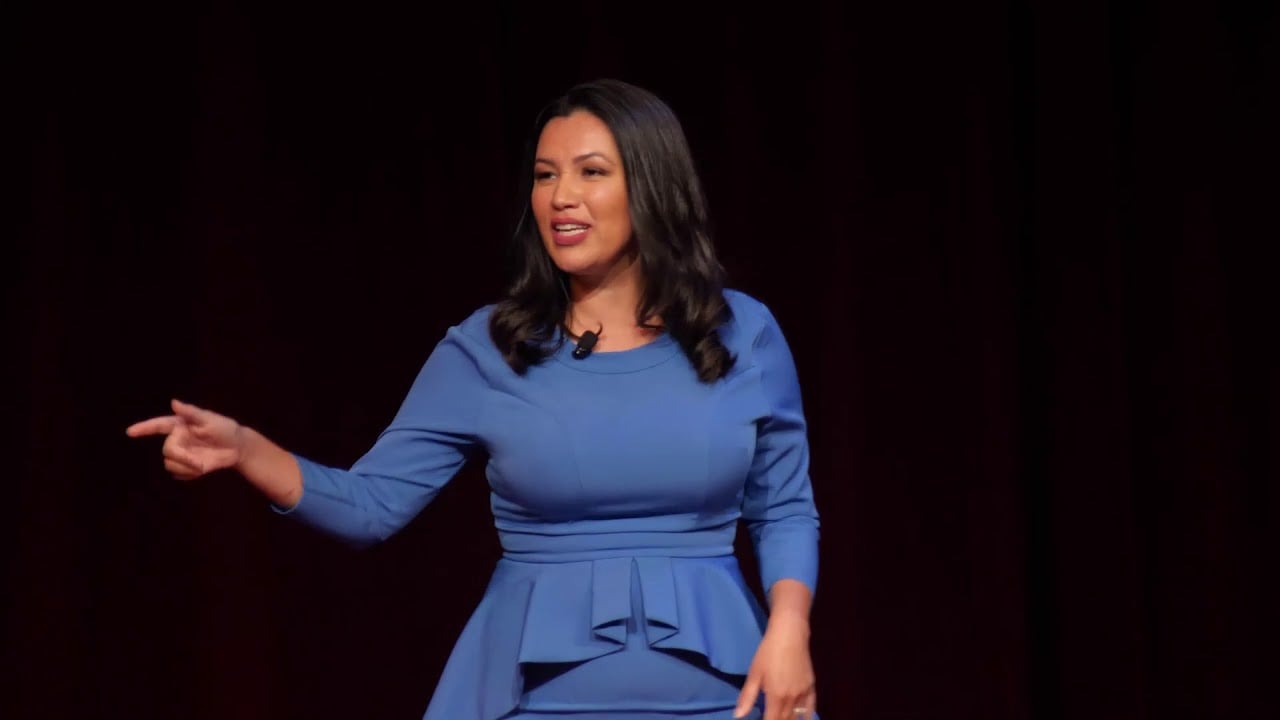Having enormous amounts of credit card and student loan debt, living paycheck to paycheck, or being unable to make car payments are more than just unfavorable occurrences. For some, these life circumstances trigger financial trauma that can result in post-traumatic stress disorder (PTSD) symptoms. It’s that intense anxiety, paranoia, and fear that appears during financial transactions or even conversations around money that eventually impacts how certain perceptions and behaviors surrounding finances are learned and passed down from generation to generation. While financial trauma doesn’t discriminate and impacts people from all economic, racial, ethnic, and gendered backgrounds, more Latinas are beginning to open up about their traumatic relationships with money and what they’re doing to heal them.
“People don’t like to talk about their finances, but it’s usually correlated or connected to their mental health as well,” Natalie Torres-Haddad, a financial literacy and mental health advocate, tells POPSUGAR Latina. “You hear people say they go on shopping sprees or they think it’s retail therapy, or whatever they want to call it, but usually they’re dealing with something deeper. They’re dealing with an emotion they’re not recognizing, and unfortunately, they use their buying power in a way that will put them in financial ruin if they don’t get it in check.”
Oftentimes, financial trauma is rooted in generational trauma. As children, we are introduced to financial interactions by watching parents or caretakers purchase items at a store, pay bills, or experience debt. If the elder is anxious about how much money they have in their bank account or is scared they can’t afford to pay a utility bill, watchful young ones pick up the message that these adverse emotions are tied to money. As adults, we tend to emulate the behaviors of our guardians, picking up their same habits and/or financial traumas. In fact, about one-third of millennials, including those who are more financially secure than their parents, experience financial trauma, also known as acute financial stress.
As an author, host of the bilingual podcast Financially Savvy Latina, and financial coach, Torres-Haddad helps women work through their financial stress and begin to have a healthy relationship with money — which looks different for everyone. “It’s not necessarily how much you make or how much you save; it’s really what makes you feel comfortable, happy, and secure,” the Salvadoran-born money expert says.
We chatted with Torres-Haddad about how Latinas can overcome generational financial trauma. Ahead, find some ways you can start disrupting financially stressful mindsets and emotions as well as tools you can use to meet your money goals.
To develop a healthy relationship with money, Torres-Haddad says it’s important to first detect if you are operating from a place of generational financial trauma. To do this, she suggests getting real with yourself. Ask questions like: how do I feel when I’m paying my bills? What kinds of emotions come up for me with that? It might help to also check in on your body and emotions when you are performing these tasks. As you answer these questions, consider where you learned these behaviors from. Then, compare your life, career, and income to the people who exhibited these manners to you. If they don’t match, ask yourself why you’re still carrying their stress and anxiety into your money behaviors. “Your parents’ journey and grandparents’ journey are not your journey. You have a different path. Just because your family came from sacrifice doesn’t mean you have to, too,” Torres-Haddad adds.
Part of unlearning unhealthy money behaviors is changing how you feel when talking about money or handling your finances. “Is there a way you can create the kind of environment to not be so anxious,” Torres-Haddad asks. She encourages her clients to set a pleasant mood; they can turn bill payments into a spa experience with soft music, a delicious-scented candle, and comfortable pajamas. “Having that ease will transform your process of you having to pay your bills,” she says. If still very anxious, Torres-Haddad encourages women to schedule therapy sessions on bill pay day.
Whether you have dreams of starting your own business, saving up money for a house, or are paying off debt, find people in your network with similar financial goals (and experience), and hold one another accountable. “These are the people you want to keep checking in on, because chances are you’ll not only make sure you’re following your next steps, but you will also keep each other on your toes,” Torres-Haddad says. You can find accountability partners within your own friend group, among colleagues, or through an online community.
According to Torres-Haddad, even if someone were to win the lottery or get an inheritance, their money patterns and feelings won’t necessarily change. That’s because they are operating from a place of trauma, and they are moving onto the next experience or relationship having the same mindsets and behaviors. “Financial trauma is not something that can be cured overnight, and it’s something you have to face every single day,” she says. Reprogramming how you feel, think, and act with money takes time. It’s normal to feel discouraged if you’re not seeing early results — most people don’t — but patience is what will get you to where you want to be.
Like with any goal, Torres-Haddad says it’s important to keep a physical reminder of your “why” nearby. Some of the financial coach’s clients carry checks in their purses of the next big purchase they want to make. Torres-Haddad prefers keeping a fake dollar bill in her wallet that notes her money goal. Every time she opens her wallet, she sees it and is reminded of her why. “You want something that you’re going to see every day and will remind you: this is why I do it,” she adds.
It’s also important to remember where you were when you started and regularly celebrate your growth. “Look back and remember where you were a year ago. Go to your Facebook Memories, and remember those milestone moments, and consider all that you have done since then,” Torres-Haddad says. She recommends women hang physical reminders of their growth in their office, like framing their first check, a photo of themselves at their first event, or even their college diploma. Moreover, she encourages women to celebrate their wins as they happen. Too often, she says, women minimize their accomplishments by attributing triumphs to “team efforts” or referring to them as “no big deal.” In contrast, men typically pat themselves on the back for even the smallest victories. “I always pick a bone with my Latinas, and women of color in particular, because we don’t celebrate enough. You need to learn how to B.R.A.G.: brag really aggressively, girl,” she says.
Sometimes, when Latinas work through their financial trauma and develop healthy money relationships, they might experience pushback from their family, friends, or community who say they “changed,” or worse that they think they’re better now. Even when this isn’t the case, it’s still common for first-generation Latinas to feel guilt or shame for making a higher salary than their parents or being able to own and participate in activities their relatives never could. For Torres-Haddad, healing financial trauma also means shifting from a scarcity mentality to an abundance mentality — and knowing we are worthy of this plentifulness.
“We are our ancestors’ wildest dream come true, and because of that, we are at a place where they wanted us to be, to create change in the world and within our families,” she says. “You, and the generation before you, worked hard to get where you are.” After all, playing small doesn’t serve them or you.
Source: Read Full Article



